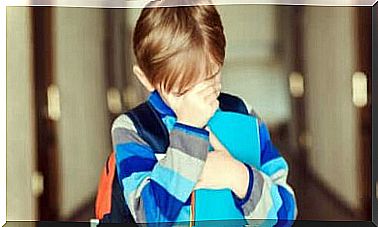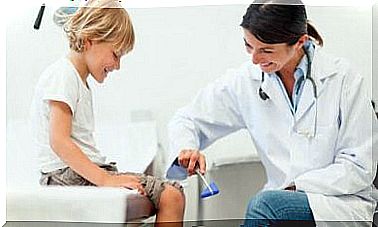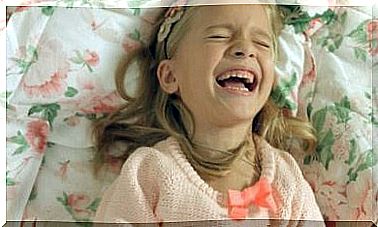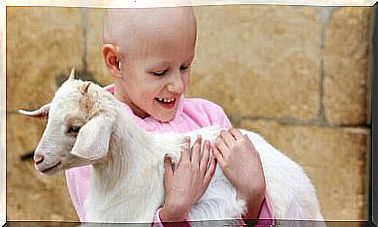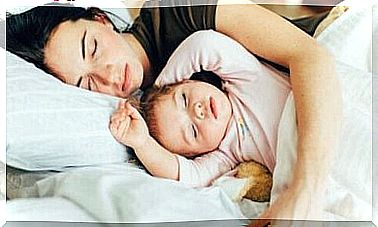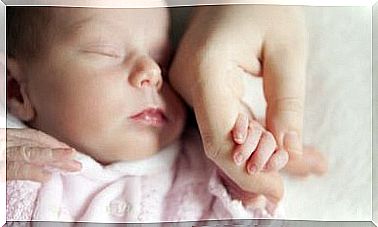What Determines My Child’s Blood Type?
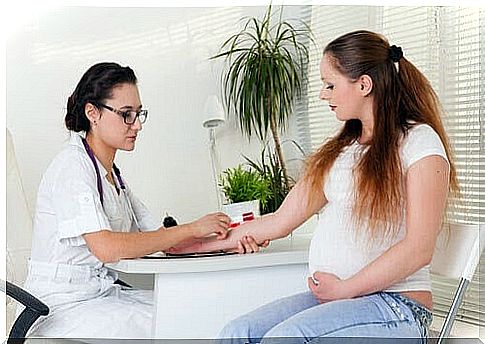
Although it may seem surprising, one’s blood type is not genetically determined at birth just by looking at the contributions from both parents. To accurately identify a child’s blood type, a doctor or nurse must take a blood sample from the child and perform an analysis.
A person’s blood type is classified according to the presence or absence of antigens on the surface of his or her red blood cells. The presence or absence of certain antigens is what determines whether the child belongs to one group instead of another.
There are three types of antigens (A, B and AB) that make up three different blood groups. In addition, the absence of antigens on the surface of red blood cells identifies group O.
The combination of these from both parents can result in the following: AA, AB, BB, AO, BO and OO. On the one hand, we have genes A and B that are dominant (expressed), and while gene O is recessive (expressed only in the presence of a second gene O).
2 large groups: ABO and Rhesus
There are more than 20 different types of possible incompatibilities between mother and growing fetus during pregnancy, and these have to do with two main groups: the ABO system and the Rh factor. We will now describe each one.
The ABO system
In this case, the incompatibility is usually milder. The three different antigens A, B and O are what determine the blood groups. They can be A, B, AB or O.
People who have antigen A on the surface of their red blood cells create antibodies – molecules that attack specific antigens – against B antigens. Those in group B do the opposite and have antibodies to group A.
People in group O have neither A nor B antigen on the surface and can therefore make antibodies against both A and B. Finally, in group AB they do not produce antibodies against either of the groups because they have the two antigens on the surface.
For example, people who have their cell walls formed from type A antigens can make antibodies against type B antigens. It would not be good for them to make antibodies against A because they would attack their own body.
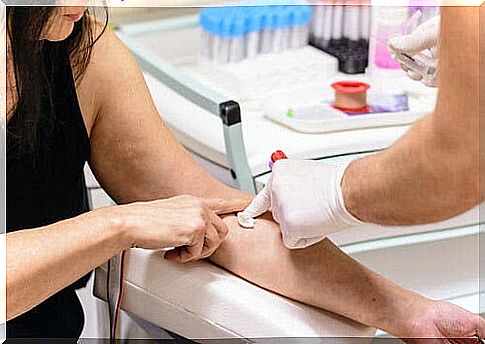
Rh system
The rhesus factor also determines your blood type. It indicates the presence or absence of a particular antigen in your red blood cells. The rhesus factor can thus be positive (Rh +) or negative (Rh -).
The most common problems with incompatibility between mother and fetus (and therefore mother and father) have mainly to do with the Rh factor.
When both parents have a negative Rh factor, regardless of blood type, the child will also have a blood type with a negative Rh. In other cases, the child may have a blood type with Rhesus + or -.
How is a child’s blood type inherited?
Blood groups are inherited from the parents: half from the mother and half from the father.
A single gene controls information about the ABO system group, where A and B are dominant, just as the brown hair gene dominates over blonde hair and dark eyes over light.
In this case , either A or B dominates over O. Therefore, people with the gene set for both AO and AA end up in the A group.
Incompatibility between groups
When there is an incompatibility , the baby’s cells are attacked by the mother’s antibodies. These are destroyed and this can lead to anemia and hyperbilirubinemia. It is usually less severe in cases of incompatibility with the ABO system compared to the Rh factor, which can be very serious.
Incompatibility between groups is rare, although it can occur in the following cases:
- Mother with blood group A, B or AB-positive: It is not necessary to know the father’s blood group.
- Mother with O-positive: It is recommended that the father take a blood sample, because if he is A, B or AB, the child may get jaundice at birth due to ABO incompatibility. This is not a serious pathology, but knowing the father’s group speeds up the diagnosis.
- If the group is the same for both parents, there will be no problems for the child.
You should definitely test your blood type to detect any incompatibilities as this is very important during pregnancy. It is important to know about an incompatibility of the couple that can create problems for the fetus.

